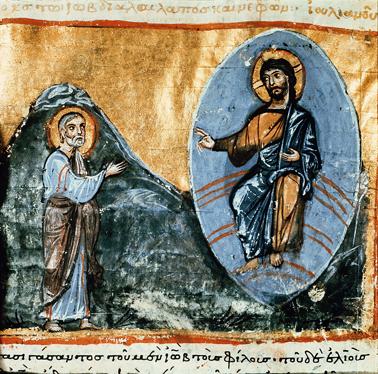The biblical book of Job, literarily, operates with what is called dramatic irony. Here is how the Oxford Dictionary defines dramatic irony:
a literary technique, originally used in Greek tragedy, by which the full significance of a character’s words or actions are clear to the audience or reader although unknown to the character.[1]
As a reader, or even movie-watcher, we the audience have the capacity to read or watch with this type of ‘irony.’ We can skip to the end, and then read the beginning to the end, knowing what the final outcome is. Or we can read through a book or watch a movie in total, and next time we come to read or watch said book or movie we will already know what the characters present in the storyline remain unaware of throughout. Indeed, the drama of our lives before God, could be characterized as a dramatic irony as understood in Christ. We have the capacity, in God’s life of Grace, who is the Christ, to know how it all ends. We don’t have the details of how that looks in our daily and personal lives, but we know the One who does; and in a general way, with important specifics in tow, we know what we can expect in the end/Eschaton. As such, we can look at our unfolding stories in light of the End, the Beginning and End, and rest in the knowledge that no matter what we walk through, both the deep waters and the fire, in this cruci-shaped life, we will indeed resurrect.
In the instance of Job’s story, we have many of the details. We know that God judged, and in the end found Job faithful, and Job’s friends faithless (not even acknowledging the youngster, Elihu’s existence). But I was thinking, as I just finished reading Job again: when you listen to Job’s “friends” and their “counsel” or “beratement” of him, at first blush it sounds like they might be offering many profound insights with reference to the character and action of God. But what we know, even from the beginning of the story, is that Job’s friends, while stating, surely, some true facts about God, that they were working off a faulty natural theological assumption based on their own lights. They presumed that Job must have been in some sort of vile sin, thus justly undergoing God’s judgement on his life. Throughout the plotline of Job’s travail, he grows in the grace and knowledge of the LORD, while his friends stay static, thinking of God through static terms, based on their own naturalistic reasoning, their own prefabricated notions in regard to God’s ways, and thus arriving at horrifically bad conclusions as they approached their “friend,” brother Job.
I was just thinking, I don’t want to operate like one of Job’s friends. I want to be Job instead. I want to know who God is as I trust and depend on the One who alone raises the dead. With Job I want to be the one who says “I know that my Redeemer lives, and at last He shall stand on the earth.” I don’t want to think God based on my own wits, or others’, thus arriving at faulty and crooked theology and its attending spirituality. I want to know God through the shape of His cross in Jesus Christ; depending upon His grace, which is sufficient, thereby genuinely coming to know the true who-ness of God from His inner-life, as I participate in that through the mediatory person of Jesus Christ, through union with Him by the re-creative and bonding work of the Holy Spirit.
[1] Oxford Dictionary, accessed 05-05-2024.
